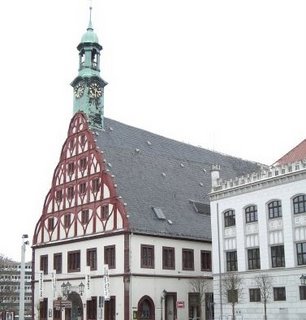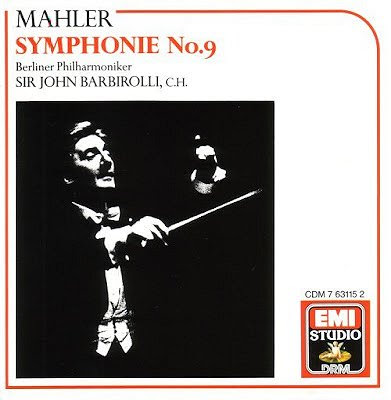I am a camera - Robert Schumann's Zwickau

Few people have heard of the town of Zwickau in the former East Germany which we visited recently, and if they have it is probably in connection with the huge car factory there. Today's Volkswagen plant is a symbol of the post-unification free market. But the huge manufacturing facility was previously the home
 of another car that came to symbolise the economic failure of the GDR, the Trabant. Three million of the plastic bodied two-cylinder cars rolled off the Zwickau production line under communist rule.
of another car that came to symbolise the economic failure of the GDR, the Trabant. Three million of the plastic bodied two-cylinder cars rolled off the Zwickau production line under communist rule. Prior to 1989 Trabants were banned from West German roads due to their very high pollution levels - five times as much carbon monoxide and nine times as much hydrocarbon as the average Western car. But post-unification Trabants have the run of German roads, Trabi safaris are all the cool thing in Berlin, and their iconoclastic status is confirmed by the post-Wende image above painted
 on the remains of the Berlin Wall . The Trabants simple plastic construction coupled with a two stroke engine and few moving parts gave them an extraordinary longevity, and they are still in everyday use today as my photo to the left shows.
on the remains of the Berlin Wall . The Trabants simple plastic construction coupled with a two stroke engine and few moving parts gave them an extraordinary longevity, and they are still in everyday use today as my photo to the left shows.In 1989 problems in the GDR economy triggered the peaceful revolution that toppled the communist dictatorship, and opened the door to the elections that led to German re-unification in 1990.
 (For the full story see I am a camera - Leipzig.) Evidence of that economic hardship was still evident everywhere we travelled in the former GDR. Outside the city centres there are still boarded-up houses, derelict factories and warehouses, and disused industrial buildings - many still pock-marked by bullet scars from the Second World War. Saxony suffered a double-whammy in the conflict. First from the dreadful allied bombing attracted by nearby Dresden and Leipzig, then from the invasion by the advancing Russian forces as they bulldozed their way to Berlin. Miraculously the centre of Zwickau survived virtually intact, and the 15th century buildings (photo above) of the Aldstadt are one of its joys today.
(For the full story see I am a camera - Leipzig.) Evidence of that economic hardship was still evident everywhere we travelled in the former GDR. Outside the city centres there are still boarded-up houses, derelict factories and warehouses, and disused industrial buildings - many still pock-marked by bullet scars from the Second World War. Saxony suffered a double-whammy in the conflict. First from the dreadful allied bombing attracted by nearby Dresden and Leipzig, then from the invasion by the advancing Russian forces as they bulldozed their way to Berlin. Miraculously the centre of Zwickau survived virtually intact, and the 15th century buildings (photo above) of the Aldstadt are one of its joys today.Virtually all the service infrastructure has been installed since 1990, and this means the consumer facilities in the former-GDR are new and very impressive. That ultimate symbol of the free market, the shopping mall, has sprung up in every city,
 and the restaurants and cafés equal, or better, those in the old West Germany. My photo is taken in a coffee shop in Zwickau that not only bettered Starbucks with its brews, but also served hot Apfelstrudel and ice cream to die for. But our main objective in visiting Zwickau was not to sample the culinary delights or visit the tourist attraction of the Trabant museum, but rather to pay homage to the city's most famous son in this the 150th anniversary year of his death.
and the restaurants and cafés equal, or better, those in the old West Germany. My photo is taken in a coffee shop in Zwickau that not only bettered Starbucks with its brews, but also served hot Apfelstrudel and ice cream to die for. But our main objective in visiting Zwickau was not to sample the culinary delights or visit the tourist attraction of the Trabant museum, but rather to pay homage to the city's most famous son in this the 150th anniversary year of his death.
Above is the very room Robert Schumann was born in on June 8th 1810. His father was a book publisher in the city, and the young Robert grew up under the dual influences of
 music and literature that were later to so influence his compositions. Schumann attended the local Lyceum, and lived in the city until moving to nearby Leipzig in 1828 to study law. While in Leipzig he studied piano with Friedrich Wieck, whose daughter Clara he eventually married. Schumann never returned to live in Zwickau. His travels took him as far afield as Russia, Austria, Switzerland and Italy before he died in a mental hospital near Bonn on July 29th 1856. The photo at the head of the article is of the massive billboard opposite Schumann's birthplace, and it portrays Robert and Clara.
music and literature that were later to so influence his compositions. Schumann attended the local Lyceum, and lived in the city until moving to nearby Leipzig in 1828 to study law. While in Leipzig he studied piano with Friedrich Wieck, whose daughter Clara he eventually married. Schumann never returned to live in Zwickau. His travels took him as far afield as Russia, Austria, Switzerland and Italy before he died in a mental hospital near Bonn on July 29th 1856. The photo at the head of the article is of the massive billboard opposite Schumann's birthplace, and it portrays Robert and Clara.The birthplace has been extensively restored, and now houses a superb museum, and archive. There is a small concert hall which is the venue for chamber music recitals and seminars devoted to the composer.
 Despite being close to both Leipzig and Dresden Zwickau is not on the tourist trail, and only the faithful make the pilgrimage to the Robert-Schumann-Haus. This means it has an atmosphere of tranqulity and purpose that is missing from so many other composer 'shrines'. Our visit to Zwickau gave us a fascinating insight both into post-unification Germany, and into the early days of one of the most important composers of the 19th century.
Despite being close to both Leipzig and Dresden Zwickau is not on the tourist trail, and only the faithful make the pilgrimage to the Robert-Schumann-Haus. This means it has an atmosphere of tranqulity and purpose that is missing from so many other composer 'shrines'. Our visit to Zwickau gave us a fascinating insight both into post-unification Germany, and into the early days of one of the most important composers of the 19th century.CDs bought in Zwickau:
* Robert Schumann, Works for the pedal piano. A very interesting rarity, four works composed in the mid-1840s for the piano with pedal attachment to simulate an organ technique. The six fugues on the name of Bach (Op 60) are more commonly played on the organ. This CD is on the Ars Produktion label (ARS 38011) with Martin Schmeding playing the hybrid instrument.
* Two CDs of the Kreuzchor from nearby Dresden. This is the choir that I wrote about in Dresden Requiem for eleven young victims. These Berlin Classic releases feature choral music and folksongs conducted by the composer of the Dresden Requiem and legendary conductor Rudolf Mauersberger (0013142BC), and romantic choral music Reger, Bruckner and Mauersberger) conducted by Gothart Stier (0013512BC)

Image credits - all (c) On An Overgrown Path except interior of Robert-Schumann-Haus and bas relief which are courtesy of the Robert-Scumann-Haus, and Berlin Wall graphic which is from Wikipedia. Any copyrighted material on these pages is used in "fair use", for the purpose of study, review or critical analysis only, and will be removed at the request of copyright owner(s). Report broken links, missing images and other errors to - overgrownpath at hotmail dot co dot uk
Other I am a camera features On An Overgrown Path include: * Berlin * Dresden * Leipzig * Britten's Aldeburgh and Rare Romantic Requiem's in Avignon features Schumann's sacred music.








Comments
My knowledge of Robert Schumann is somewhat greater than my knowledge of football, and I didn't realise at the time of writing that Schumann's birthday would fall at the start of the football World Cup in Germany.
The economic legacy of the former East Germany, which I write about, means that only one World Cup venue (Leipzig) is in the old GDR. But let's hope the competition is a celebration of shared international values, rather than an expresion of historical national differences.
Joe